
OR
Chinese Defense Minister arriving in Nepal next week as ruling NCP is plagued by bitter intraparty dispute
Published On: November 20, 2020 05:23 PM NPT By: Kosh Raj Koirala | @KoshRKoirala
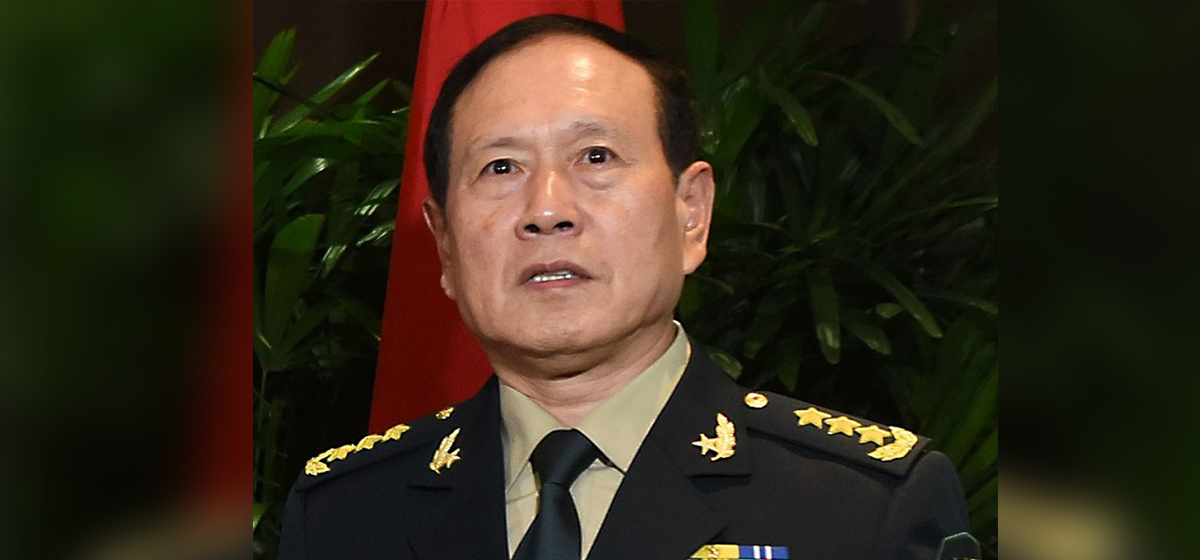
KATHMANDU, Nov 20: Shortly after the visit of two security chiefs of India, a top defense official of China is scheduled to arrive in Kathmandu next week.
Highly-placed political sources said that the Chinese Minister of National Defense, Wei Fenghe is scheduled to visit Nepal by the end of this month to attend a program organized to celebrate the 65th anniversary of the establishment of diplomatic relations between Nepal and China. “The exact date of the visit is yet to be fixed. But he is expected to arrive in Kathmandu within the next 10 days,” said a source in the ruling Nepal Communist Party (NCP) asking not to be named.
Although officials at the Ministry of Foreign Affairs (MoFA) who Republica talked to said they are yet to receive official information about the visit, political sources said the visit is likely to take place on November 29. The sources also claimed that preparations have already started for the visit of Fenghe, whose ministry serves as a liaison body representing the Central Military Commission and People’s Liberation Army when dealing with foreign militaries in military exchange and cooperation.
The Chinese Minister Fenghe, who is also a state councilor and a close confidante of President Xi Jinping, is scheduled to arrive around the same time Indian Foreign Secretary Harsha Vardhan Shringla is expected to make his maiden visit to Nepal on November 26. Fenghe is scheduled to participate in some of the programs to be organized by Nepal-China friendship groups to mark the 65th anniversary of Nepal-China diplomatic relations and hold meetings with political leaders including his Nepali counterpart.
Earlier, Indian Army Chief Manoj Mukunda Naravane and its external intelligence wing, Research and Analysis Wing (R&AW) Chief Samant Goel visited Nepal. While Goel arrived in Kathmandu as an envoy of Indian Prime Minister Narendra Modi, Army Chief Naravane was here to receive the honorary title of the General of Nepal Army.
The visit of the Chinese Minister for National Defense is considered important as this comes in the wake of a growing rift within the ruling Nepal Communist Party (NCP). Ambassador of China to Nepal, Hou Yanqi has been holding a series of meetings with NCP leadership to save the party unity, according to a section of leaders.
The visit of Minister Fenghe is the highest level Chinese visit to Nepal after President Xi Jinping visited Nepal in October last year. Although the senior NCP leaders have engaged in virtual interaction with CPC leaders time and again, there has been no such high-level exchange between the two countries since then.
The visit of Minister Fenghe also coincides with the changing strategic environment in the region with India, the US and other regional powers in the Asia Pacific region like Japan, South Korea and Australia organizing joint military exercises to what they call “countering Chinese influence”. India and China also engaged in a bitter military faceoff in the bordering Ladakh region in which 20 Indian soldiers were killed.
Referring to a few media reports on alleged Chinese encroachment of Nepali territory in Humla district, Chinese government’s mouthpiece-- Global Times-- alleged that Nepal’s main opposition party, Nepali Congress, India, and some western countries were provoking Nepal against China over what it called a ‘fabricated’ border dispute between the two countries.
Foreign policy analysts in Nepal say the visit by Chinese Defense Minister Fenghe is not a routine visit and that this should be dealt with due seriousness. “The relation of Nepal with India and China has deteriorated lately. Chinese interest and involvement in Nepal have grown significantly with India and US forging a strategic partnership,” said former foreign minister Ramesh Nath Pandey.
Pandey argued that the latest visit of Indian and Chinese officials to Nepal reflects the increased strategic interests of both immediate neighbors in Nepal. “Nepal, which was already on the strategic radar of China and the US, has now started feeling its heat. This is the result of Nepal’s geopolitical location and changing power equation of international powers,” he said. “Nepal must be able to demonstrate its talent to understand this situation and act tactfully.”
You May Like This
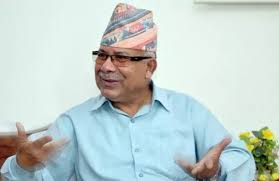
NCP senior leader Nepal leaves for China
KATHMANDU, July 11: Nepal Communist Party senior leader Madhav Kumar Nepal has left for Gansu province in the People's Republic... Read More...
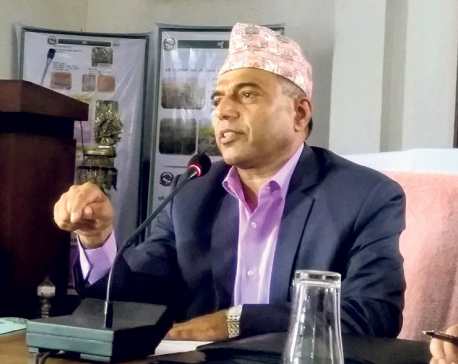
Minister bats for Nepal-China cooperation on tea production, research
BEJING, March, 19: Minister for Agriculture and Livestock Development Chakrapani Khanal has proposed cooperation for production of tea, its research... Read More...
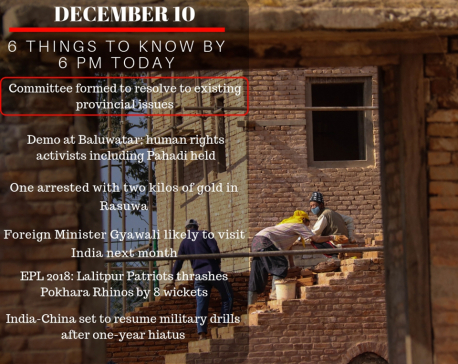
Dec 10: 6 things to know by 6 PM today
Your daily dose of missed important news of the day. ... Read More...




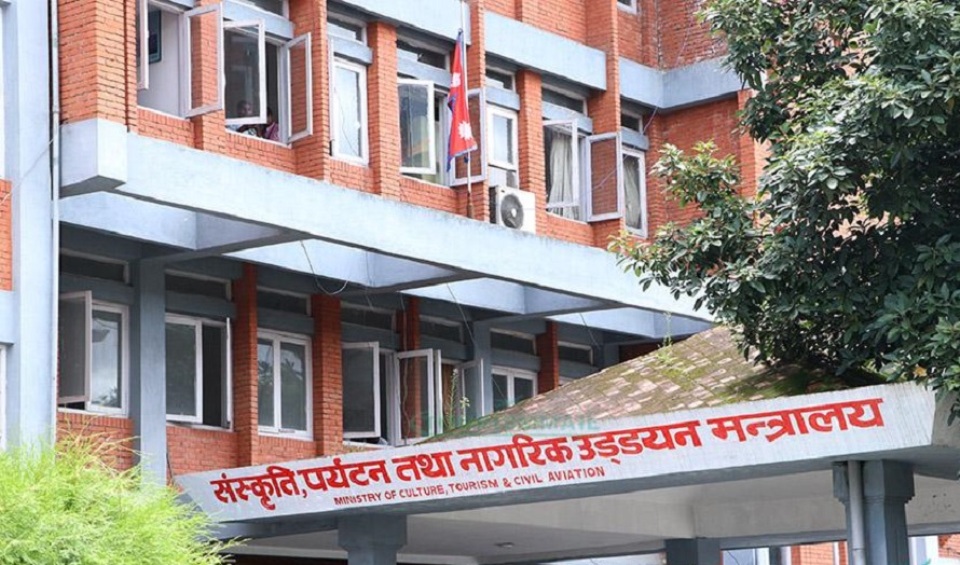



Just In
- One arrested from Jhapa in possession of 43.15 grams of brown sugar
- EC to tighten security arrangements for by-elections
- Gold price drops by Rs 2,700 per tola
- Seven houses destroyed in fire, property worth Rs 5.4 million gutted
- Police pistol missing after drug operation in Bara, investigation underway
- Truck carrying chemical used in drugs catches fire
- Nepali journalists Sedhai and Kharel awarded second prize at Fetisov Journalism Awards for their exposé on worker exploitation in Qatar World Cup
- Devotees gather at Balaju Park for traditional ritual shower at Baisdhara (Photo Feature)




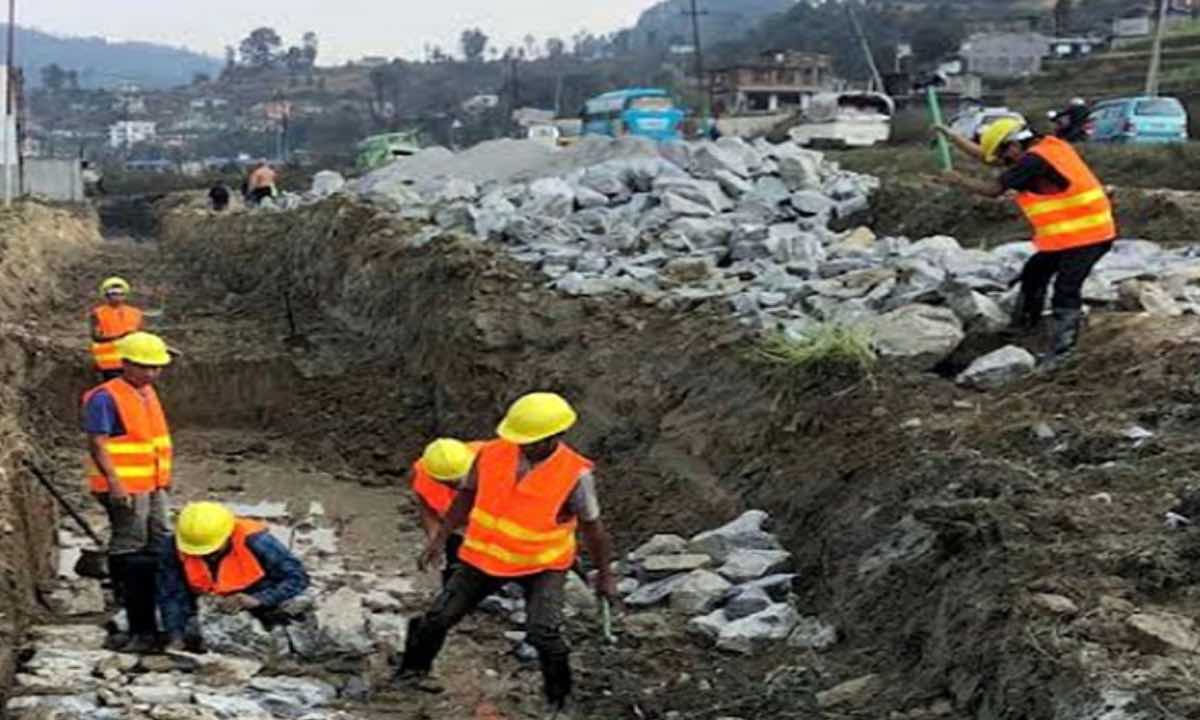





Leave A Comment